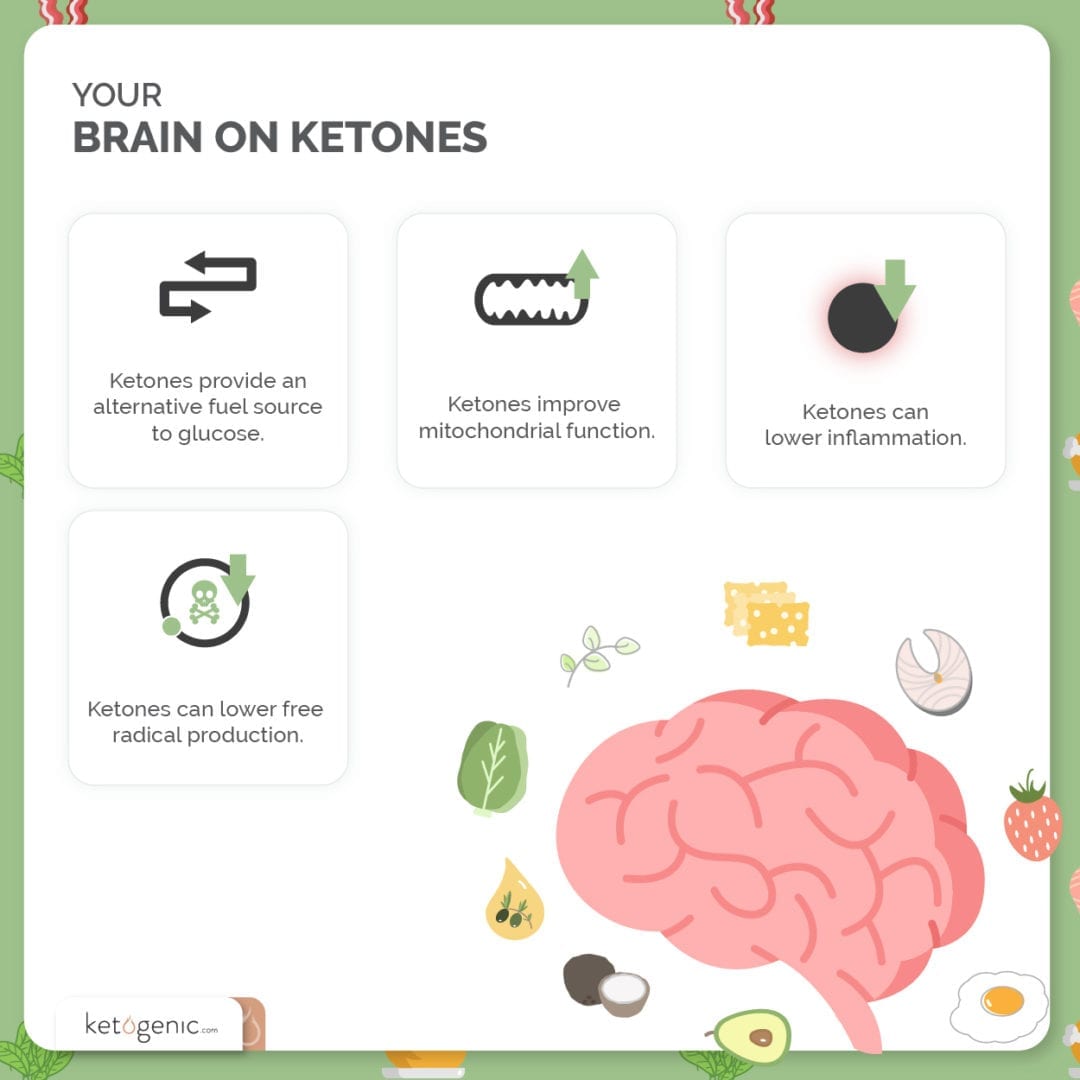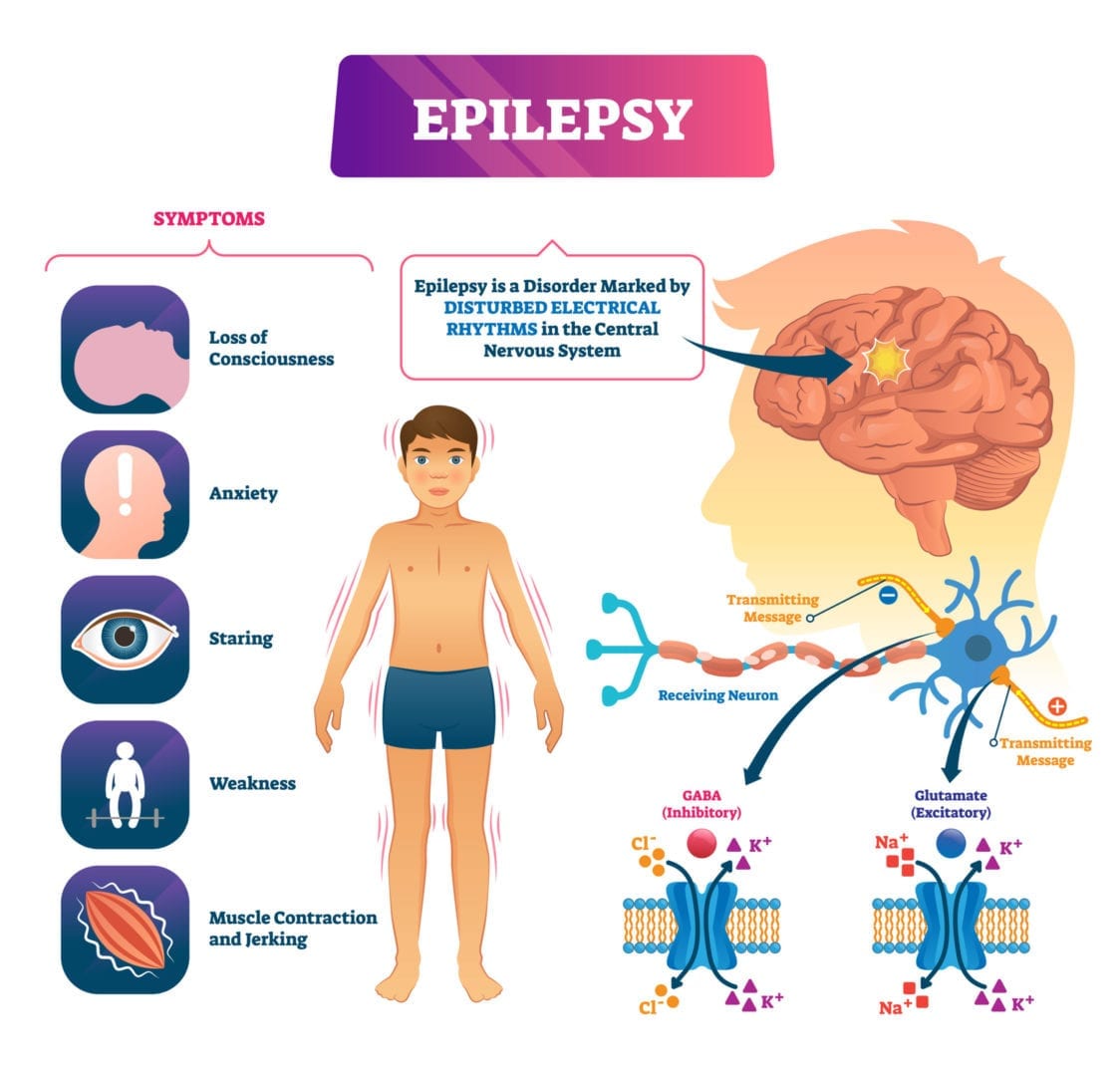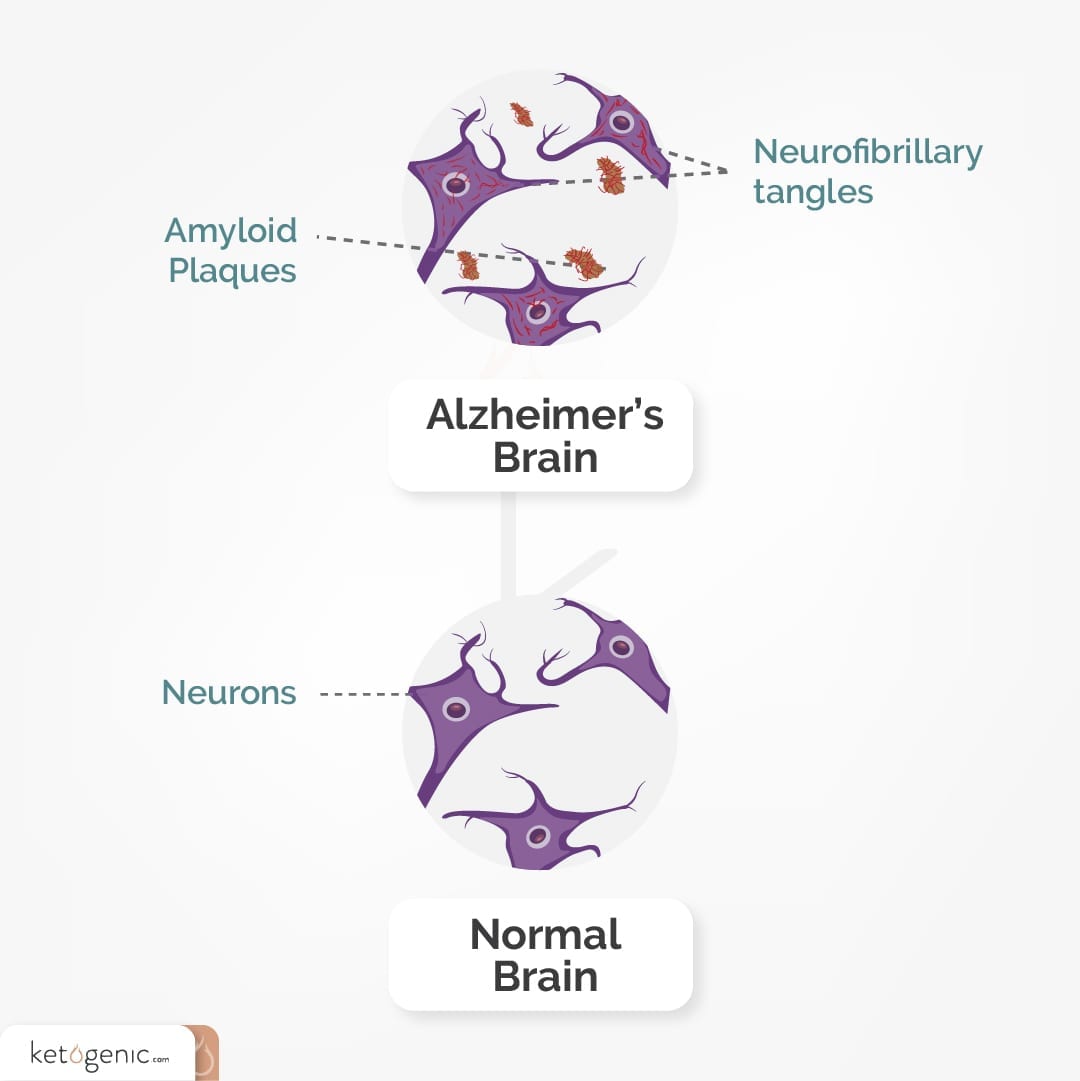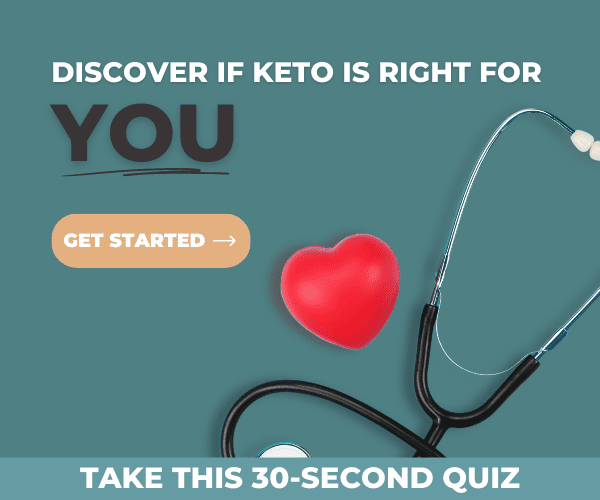
One of the most widely known and well-studied benefits of the ketogenic diet is for epilepsy and seizure reduction. The ketogenic diet and the healthy fats and ketones that come along with it seem to have profound positive effects on the brain and cognitive functioning. Many people praise the improved clarity they feel as the ketogenic diet clears up what’s commonly known as brain fog. How will you know how good your brain can feel and how well your brain can operate on keto unless you try it?
How Can Keto Benefit the Brain?
Keto can benefit the brain in different ways. Glucose (sugar) is a main fuel source for the brain cells, but when glucose is restricted on the ketogenic diet, ketones can become the preferred fuel source. Our brains can metabolize glucose and ketones for energy, but ketones are metabolized faster and provide more energy [1].
Ketone bodies give the brain energy through different mechanisms. Ketones might also benefit the brain and be an effective brain fuel because they provide more cellular energy per unit of oxygen consumed when compared to glucose [2].
Ketone bodies also help modulate hormone signaling in the hypothalamus of the brain. This can positively affect hormones like leptin and insulin that play a role in digestion, satiety, and metabolism [3].
Ketones provide a carbon source for the glutamate neurotransmitter and can effectively regulate certain processes and ratios in the brain. Ketone bodies also lower tissue inflammation and free radical production. This might help prevent neurological disorders [4].
The increase in essential fatty acids on the ketogenic diet also has advantages for brain health. The human brain is the fattiest organ in the body at around 60% fat. Some researchers say the brain is even higher in fat! [5].

What Brain Conditions Can Keto Help With?
The research on keto for brain health is promising and continues to show the positive effects, particularly for neurological and neurodegenerative disorders and neuromuscular diseases [6].
People use the ketogenic diet for migraines, post-traumatic stress disorder, Parkinson’s Disease, Alzheimer’s Disease, and more.
1) Brain Cancer
Studies show that essential fatty acids, ketones, and other factors of the ketogenic diet can have a positive impact on brain tumors and brain cancer. The ketogenic diet, especially when paired with caloric restriction or intermittent fasting has been shown to decrease tumor growth [7]Check out Josh’s inspiring story on living with four brain tumors and how finding keto changed his perspective and his entire life.

2) Traumatic Brain Injury
Traumatic brain injury (TBI) can occur due to car accidents, sports accidents, and other reasons. Ketones might help reduce brain damage associated with TBI. The brain has an increased need for energy following trauma and glucose metabolism is often altered, preventing neurons from properly using glucose for energy. This can lead to the starvation of brain cells. Even if glucose metabolism is impaired, ketone utilization isn’t, and research shows the ketogenic diet can improve symptoms of TBI [8].
3) Epilepsy
The ketogenic diet has been successfully implemented as a therapy for epilepsy for many decades. Research concludes that the keto diet is beneficial for epilepsy and social behavior and cognition [9] [10]

4) Alzheimer’s Disease
Alzheimer’s disease is complex, but researchers are pointing to region-specific declines in brain glucose metabolism. Using ketones to fuel the brain and switching the metabolism from being primarily a sugar-burner to a fat-burner has shown promise for Alzheimer’s treatment [11]

5) Multiple Sclerosis and Other Neurological Conditions
Many people are also using the ketogenic diet for multiple sclerosis. One of these success stories is the renowned Dr. Terry Wahls who designed the Wahls Protocol ketogenic nutrition plan to treat her disease with incredible and life-changing results [12]

Do You Plan on Using Keto for Brain Health?
Comment below and share with us how keto has improved your brain health and cognitive functioning!
References
Bak, L. K., Schousboe, A., & Waagepetersen, H. S. (2006). The glutamate/GABA-glutamine cycle: aspects of transport, neurotransmitter homeostasis and ammonia transfer. Journal of Neurochemistry, 98(3), 641-653.
LaManna, J. C., Salem, N., Puchowicz, M., Erokwu, B., Koppaka, S., Flask, C., & Lee, Z. (2009). Ketones suppress brain glucose consumption.In Oxygen Transport to Tissue XXX (pp. 301-306). Springer, Boston, MA.
Seyfried, T. N., & Mukherjee, P. (2005). Targeting energy metabolism in brain cancer: review and hypothesis. Nutrition & Metabolism, 2(1), 30.
Veech, R. L. (2004). The therapeutic implications of ketone bodies: the effects of ketone bodies in pathological conditions: ketosis, ketogenic diet, redox states, insulin resistance, and mitochondrial metabolism. Prostaglandins, Leukotrienes, and Essential Fatty Acids, 70(3), 309-319.
CY, C., DS, K., & JY, C. (2009). 18(4), 231-241.
Paoli, A., Bianco, A., Damiani, E., & Bosco. G. (2014). Ketogenic diet in neuromuscular and neurodegenerative diseases. Nutrients and Muscle Disease,
Zhou, W., Mukherjee, P., Kiebish, M. A., Markis, W. T., Mantis, J. G., & Seyfried T. N. (2007). The calorically restricted ketogenic diet, an effective alternative therapy for malignant brain cancer.Nutrition & Metabolism, 4
Gasior, M., Rogawski, M. A., & Hartman. A. L. (2006). Neuroprotective and disease-modifying effects on the ketogenic diet. Behavioral Pharmacology, 17(5-6), 431-439.
Hallböök, T., Sunggoan, J., Maudsley, S., & Martin, B. (2012).The effects of the ketogenic diet on behavior and cognition.Epilepsy Research, 100(3), 304-309.
Yudkoff, M., Daikhin, Y., Melø, T. M., Nissim, I., Sonnewald, U., & Nissim, I. (2007). The ketogenic diet and brain metabolism of amino acidsL relationship to the anticonvulsant effect. Annual Review of Nutrition, 27, 415-430.
Henderson, S. T. (2008). Ketone bodies as a therapeutic for Alzheimer’s disease. Neurotherapeutics, 5, 470-480.
Storoni, M., & Plant. G. T. (2015). The therapeutic potential of the ketogenic diet in treating progressive multiple sclerosis. Multiple Sclerosis International, 2015,









